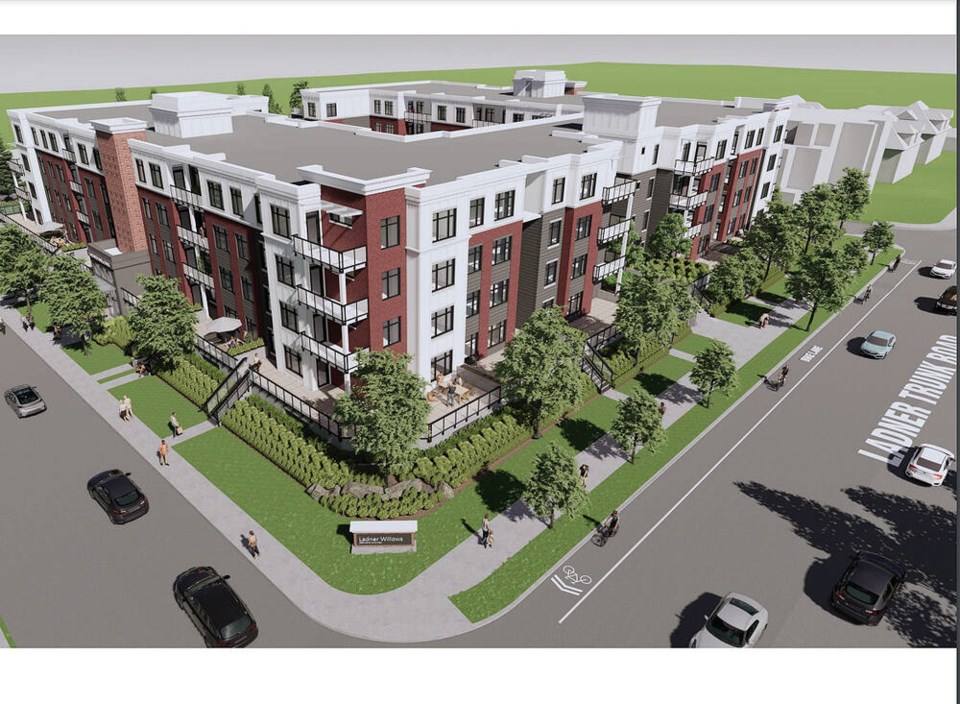Delta residents will have an opportunity to find out more about a revised application to build a large-scale non-market housing complex in Ladner and have their say at a public information meeting next week.
The meeting on the Ladner Willows redevelopment project takes place Thursday, Jan. 25, from 5:30 to 7:30 p.m. at city hall.
Located at Ladner Trunk Road at 55B Street, the project would see 146 units replace the existing 40 unit, low-income complex.
The Official Community Plan (OCP) amendment application by the Red Door Housing Society includes a five-storey building that would have four-storeys of residential units and one of above-grade parking.
A previous proposal to redevelop the site into a 150-unit non-market rental complex was rejected by city council following a public hearing in June 2022.
Meanwhile, a recent report to Metro Vancouver’s Mayors Committee outlined several questions and concerns from member jurisdictions regarding the provincial government’s recent suite of housing legislation, including the potential of removing or curtailing several tools that are currently used to deliver affordability in the region.
In current planning practices, municipalities contribute to housing objectives by capturing a portion of the additional land value created through rezoning to contribute toward affordable housing.
However, there is “a substantial risk” that the new legislation will reduce the ability of municipalities to generate much-needed non-market/affordable housing units through new development, the report warns.
The province is actively considering enabling inclusionary zoning in B.C., legislation that risks removing or curtailing several of the key tools that are currently used to deliver affordability through contributions to housing reserve funds and the direct delivery of affordable units by the private sector.
The report notes that the new legislation needs to be developed to create additional tools for housing affordability and help ensure the target of 15 per cent affordable homes in Urban Centres and Frequent Transit Development Areas is met.
The mechanisms should be developed to complement inclusionary zoning and expand the delivery of non-market housing, the report adds.




